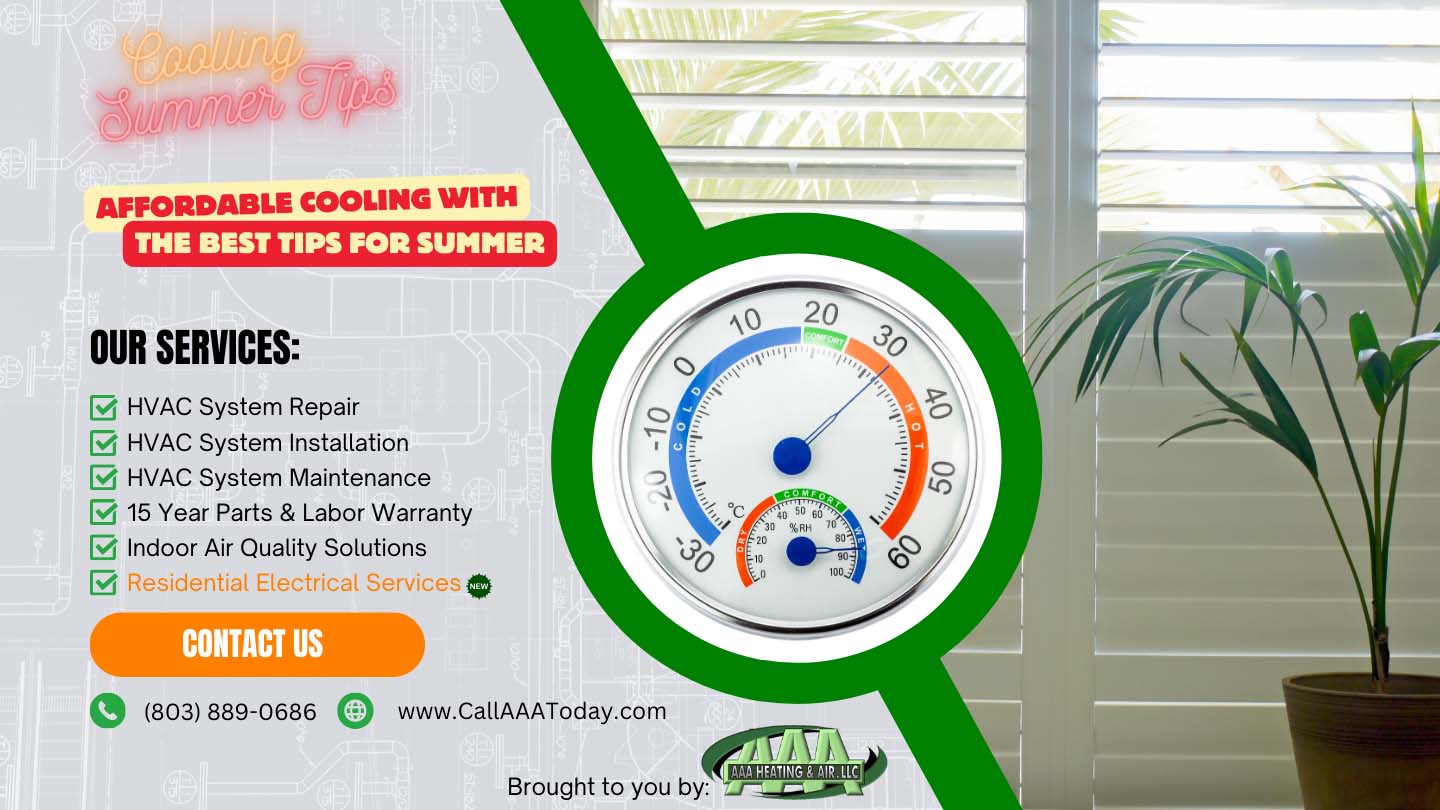Summer in the Greater Columbia Metro Region of South Carolina brings with it the delightful warmth of long, sunny days and the not-so-delightful challenge of keeping our homes cool. As temperatures rise, so do our energy bills, and finding that perfect balance between comfort and cost can seem like an uphill battle. But fear not, homeowners! We’ve compiled the best Cool HVAC Summer Tips to help you stay cool and energy-efficient this summer without breaking the bank.
Maximize Your HVAC Efficiency
Your HVAC system is the heart of your home’s cooling mechanism. Keeping it in top shape ensures that it runs efficiently and effectively. Here are some essential tips to get the most out of your HVAC system this summer:
1. Regular Maintenance
Schedule regular maintenance checks for your HVAC system. A professional tune-up can identify and fix small issues before they become costly problems. Replace or clean filters every month to ensure smooth airflow and reduce strain on the system.
2. Programmable Thermostats
Invest in a programmable thermostat to automatically adjust the temperature based on your schedule. Set it a few degrees higher when you’re not home and lower it just before you return. This can lead to significant energy savings without compromising comfort.
3. Seal Leaks and Insulate
Following Cool HVAC Summer Tips, you’ll ensure your home is properly insulated by sealing any leaks around windows, doors, and ducts. This prevents cool air from escaping and hot air from entering, making your HVAC system work less to maintain a comfortable temperature.
Smart Cooling Practices
Beyond HVAC maintenance, adopting smart cooling practices can make a big difference in your energy consumption and overall comfort.
1. Use Ceiling Fans
Ceiling fans can help circulate cool air throughout your home, reducing the load on your HVAC system. Remember to set your ceiling fans to rotate counterclockwise during the summer months for a cooling breeze.
2. Block Out the Sun
Close curtains or blinds during the hottest parts of the day to block out direct sunlight. Consider using reflective or blackout shades to keep your home cooler and reduce the need for air conditioning.
3. Cook Outdoors
Using your oven or stove can significantly raise the temperature in your home. Opt for grilling outside or using a microwave to prepare meals, minimizing indoor heat and the strain on your cooling system.
4. Ventilate During Cooler Hours
Take advantage of the cooler morning and evening hours by ventilating your home. Open windows and use fans to bring in fresh, cool air, and then close them before the day heats up.
Energy-Efficient Upgrades
Investing in energy-efficient upgrades can lead to long-term savings and a more comfortable home environment.
1. Upgrade to Energy-Efficient Appliances
Consider replacing old air conditioning units with newer, energy-efficient models. Look for units with a high SEER (Seasonal Energy Efficiency Ratio) rating for optimal performance.
2. Install Window Film
Window films can block up to 99% of UV rays and significantly reduce heat gain in your home. They are a cost-effective way to keep your home cooler and protect your furnishings from sun damage.
3. Plant Shade Trees
Strategically planting trees around your home can provide natural shade and reduce cooling costs. Deciduous trees are ideal as they provide shade in the summer and allow sunlight through in the winter.
Stay Cool and Save Money
Implementing these Cool HVAC Summer Tips can help you enjoy a comfortable, cool home while keeping energy costs in check. By maintaining your HVAC system, adopting smart cooling practices, and investing in energy-efficient upgrades, you can make a significant impact on your summer cooling expenses.
Cool More for Less
For more Cool HVAC Summer Tips and to ensure your HVAC system is running at peak efficiency, call (803) 889-0686 now to speak to our live & locally hired Professional Service Representatives, or click HERE to fill out our online Service Request form 24/7. Let’s make this summer cool, comfortable, and cost-effective!

Written by: Jared M. Sewell

